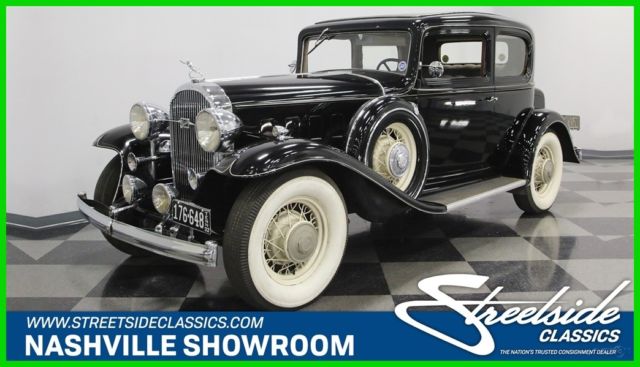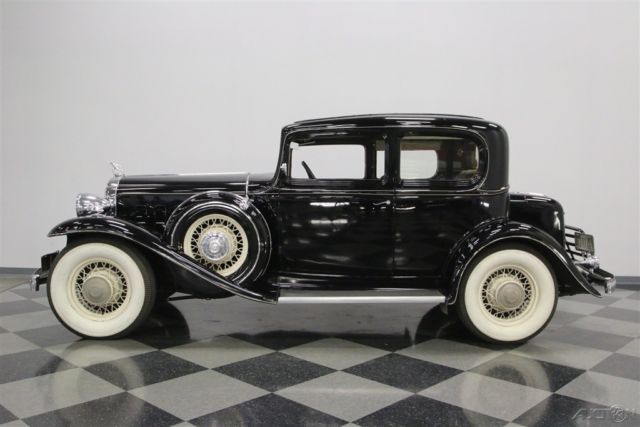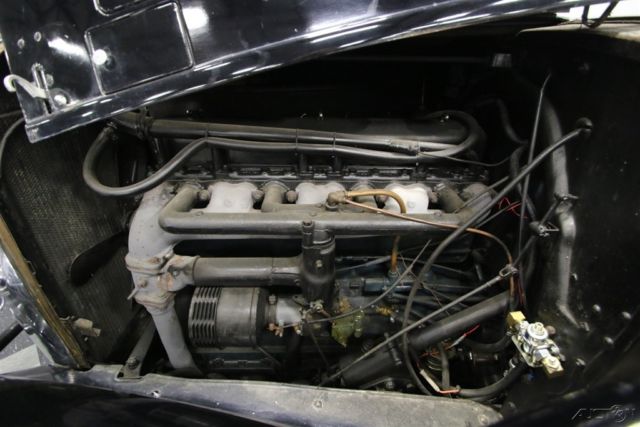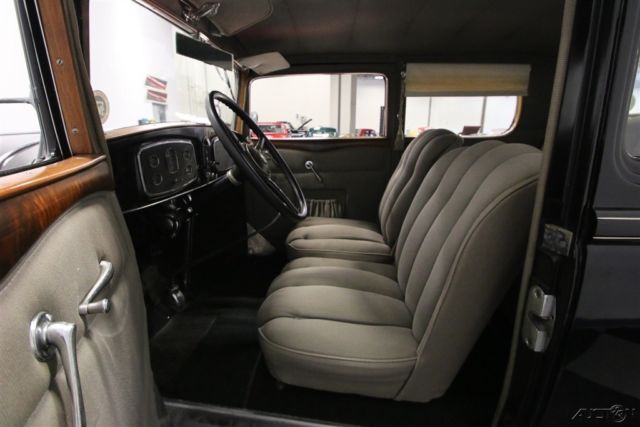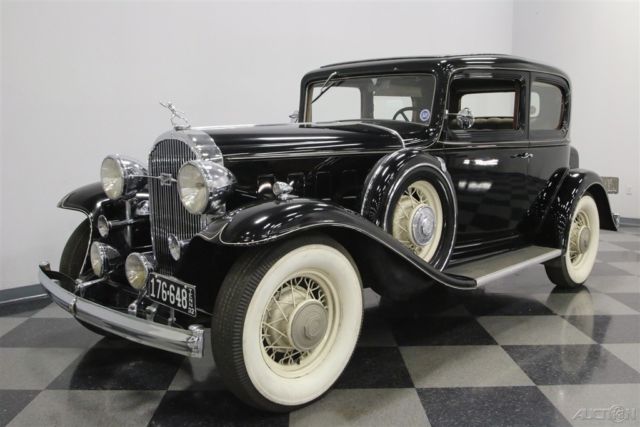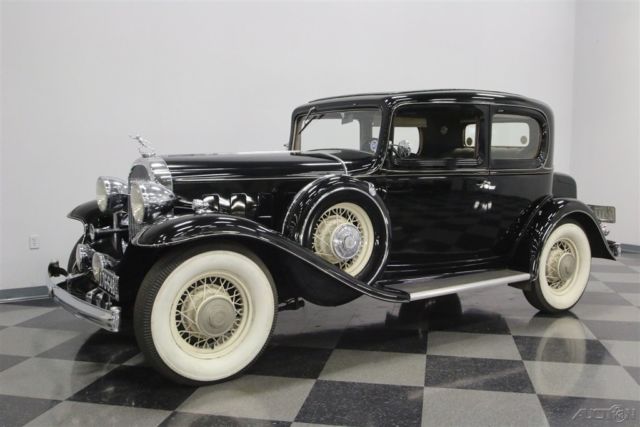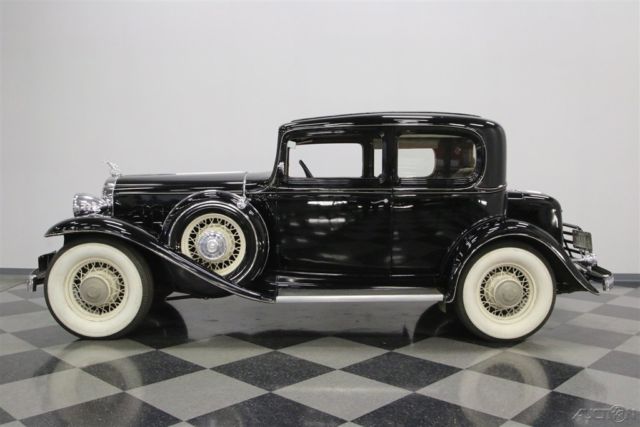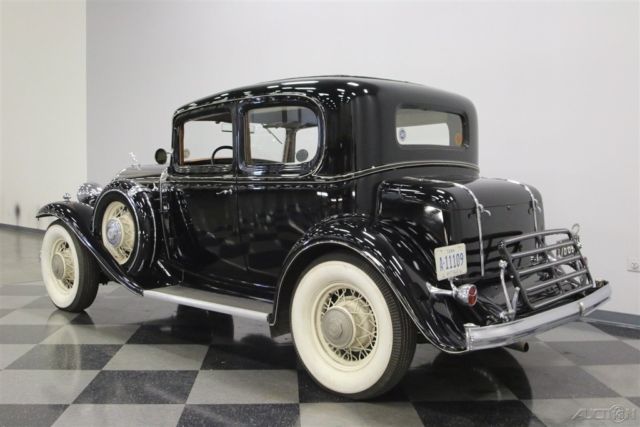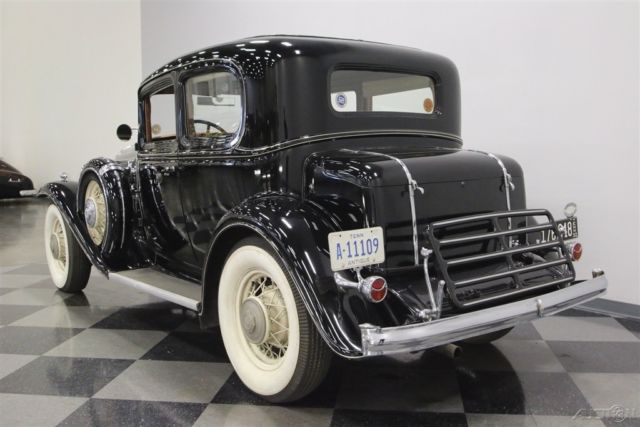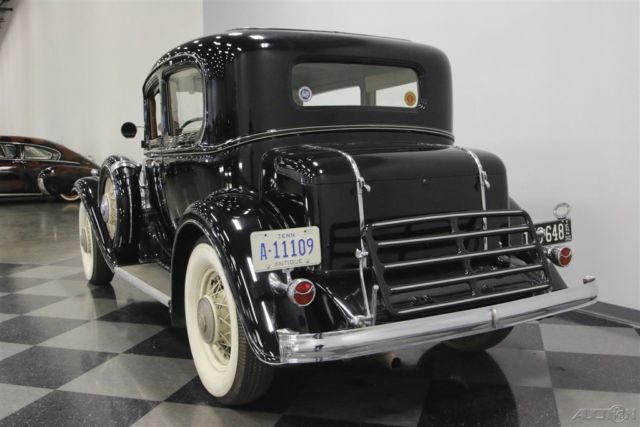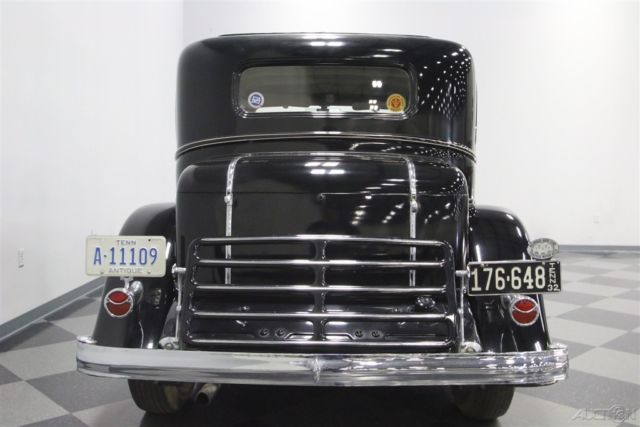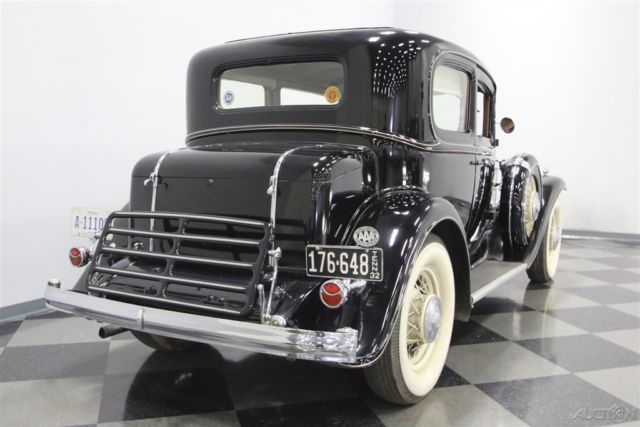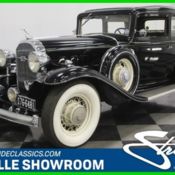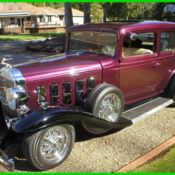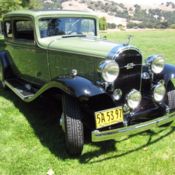Description
This elegant old Buick is interesting and valuable for several reasons. For one, it is a rare and sought-after Series 80 Victoria, an upscale model of which only 1800 were produced. It is living (or rather running) proof that there were a few people around who appreciated a car like this and could afford it, even during the great depression. It is also a tribute to Buick, who was one of the few manufacturers who adapted, toughed it out, and survived those years. Presented in the factory correct color of Imperial Black, it wears tasteful touches of chrome along with some fine white pinstriping. The paint is in pretty nice shape considering it was resprayed during a restoration about 40 years ago, and while there are a few chips and defects, it shines nicely and brings smiles to the faces of people who see it. The front of the car announces its entrance with a tall chrome grill of vertical bars topped by a beautiful hood ornament. The narrow hood and separate fenders have large headlights on tall perches between them, with air horns and driving lights below them, all underlined by a curved chrome bumper. White pinstripes gracefully dress out the edges of the fenders and passenger compartment, and delicate chrome piping accents the spare tires on both sides as well as the bands that latch down the trunk lid. Wide white wall tires are mounted on wire laced wheels with a center cap embossed with a fancy B. Open the door and you will be stepping into the lap of 1930s luxury. The window of the door is trimmed out in beautiful wood which is in very good condition. All the wood in this interior is in great condition, which is an especially valuable feature because you can't just order reproductions from a restoration supply house for this car. The door panels and upholstery are finished in gray cloth and sitting in the front seats is like sitting in your favorite chair while the back seat is probably nicer than your living room couch. It also has fancy roll down shades for the windows in the back and also passenger assist cords hanging at the door pillar. A large three-spoke wheel sits in front of a simple dash with the speedometer in the middle surrounded by fuel, oil, water, and volt gauges and with a stick for the 3-speed manual transmission extending from the floor. (Some things haven't changed since 1932). Open that piano hinged hood (carefully please), and you will find a stock and well preserved 345-cubic inch straight 8. There are signs that the Marvel updraft carburetor has been rebuilt (no surprise there) and there is a fuel regulator that has been added to the system. The chassis of the car is pretty simple as would be expected in 1932. A solid drop axle mounted on long, multi-leaf springs supports the front end and a solid axle on leaf springs gets the job done at the rear. There is a Midas muffler on the car which looks to be in reasonable shape but is a bit of a vintage piece in and of itself. Of-course there are drum brakes all around and the car rides on 7.00 by 18 wide whitewall tires. By their very nature, classic luxury cars were owned by people of means. During the depression, those people tended to be entertainers, captains of industry, or gangsters. (Prohibition didn't end until 1933). Come on down and indulge your fantasies while you drive this car and imagine you are Clark Gable, or John D Rockefeller, or Bonnie and Clyde. And bring your fashionable hat. Everybody wore them back then.
